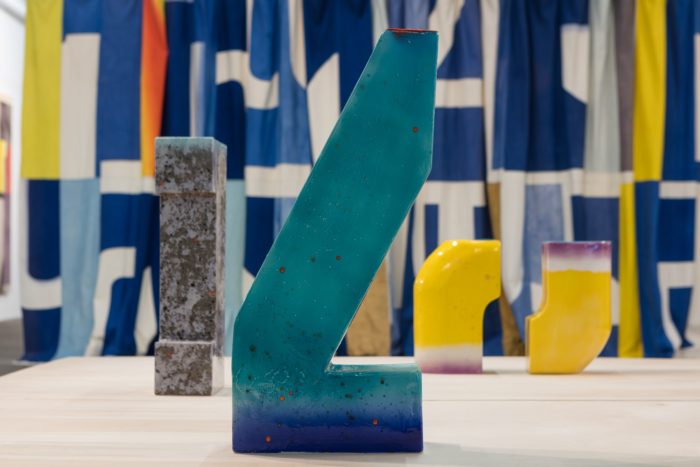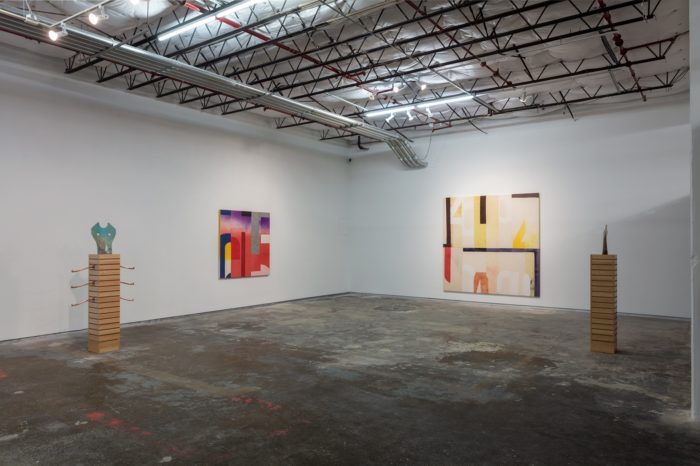Reading time: 2 minutes

01.07.2017
Dallas Contemporary, Dallas, Texas, USA
April 8, 2017 – August 20, 2017



Through a wide variety of media ranging from installation to performance and ceramics, Pia Camil explores themes of art history, consumerism and the Mexican urban landscape. Investigating urban ruin through interpretations of abandoned billboards, dollar stores, and iconic works of art, Camil addresses the aesthetic language of modernism and its relationship to retail and advertising.
The exhibition Bara, Bara, Bara draws its name from the rythmic cry of street vendors in Mexico City. Short for the Spanish word barato, which means cheap, the exclamation is aimed to draw people’s attention to a wide variety of low-cost goods available for sale. Furthering the exhibition’s connection to consumer culture, Camil is inspired by the aesthetic of outdoor markets and discount retailers. Slat paneling, market awnings, and jewelry displays all function as inspiration.
Camil’s massive site-specific installation Divisor Pirata is comprised of t-shirts acquired from the street markets of Iztapalapa, Mexico City. The shirts were originally produced in Latin America, sold to retailers and organizations in the United States, and then illicitly found their way to the bargain markets of Mexico. Camil furthers the transit of the t-shirts by bringing them back to the United States and displaying them at Dallas Contemporary. In doing so, she brings attention to contemporary trade routes and the permeability of borders. The artist deconstructs the shirts and then sews them together, creating large stretches of fabric. In Bara, Bara, Bara, the work is installed to reflect the markets at which the shirts were purchased. The work formally draws inspiration from Lygia Pape’s seminal 1968 performance Divisor, in which community members of Rio de Janerio, Brazil were invited to walk together through the city connected by an enormous piece of white fabric which each participant popped their head through. The work illustrates the tension between the identity of the individual versus that of the collective.
Bara, Bara, Bara brings attention to shared experiences with commerce and the mechanisms of globalization. The works together present the breadth of Camil’s practice over the past five years.
http://dallascontemporary.org/
Comments
There are no coments available.